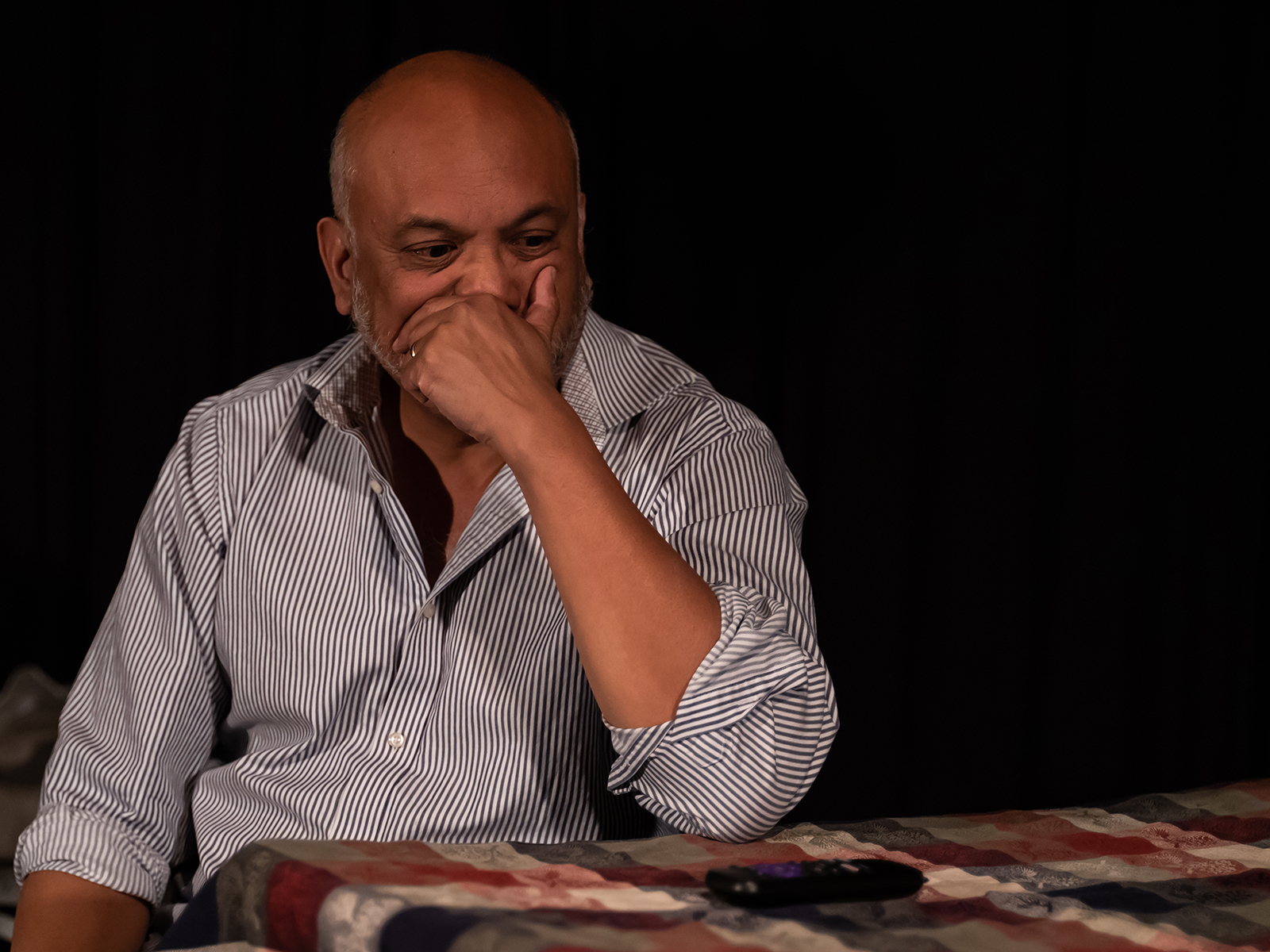The Local newsletter is your free, daily guide to life in Colorado. For locals, by locals.
In the summer of 2010, Jihad Milhem was fresh out of college, living in Ohio, and saving up to move to New York City and pursue acting when a proposal to build a 13-story Islamic community center similar to a YMCA near Ground Zero took over the headlines. People across the country decried the proposed facility, dubbed the ‘Ground Zero mosque’, as disrespectful to those who died on September 11, and, in some cases, the outrage translated into hate crimes against Muslims living in America.
Milhem, the son of a white woman from Ohio and a Muslim man from Palestine’s West Bank, is not Muslim. He says he spent his childhood moving from place to place with his mother, who suffered from schizophrenia and struggled to keep a job, and visiting his father and stepfamily in their Arabic-speaking household, where he was expected to know and follow customs that he didn’t understand. According to Milhem, he never felt like he completely fit in one place or the other.

“Who I was depended on who was looking at me,” says Milhem, now a playwright and actor, “which I think is probably what lent me to becoming an actor in the first place.”
The negative response to the mosque hit close to home: After 9/11, Milhem says his father was kidnapped at gunpoint in Grove City, Ohio, and held in a van overnight, and someone spray-painted “go home” on the outside of his father’s house.
When the mosque came up in conversation with Milhem’s older half-sister and brother-in-law on his mother’s side (both white), he felt the rift between their views and their experiences. “They were against the mosque being built there, and I didn’t really say anything about it,” he says. “I just let the topic come and go in the conversation.”
Not long after, Milhem moved to New York City and started writing his play, Mosque, after seeing two cabbies in a friendly, but passionate argument on the street. “They were arguing, but you could tell they enjoyed each other’s company,” Milhem says.
The scene he wrote became the second scene in the final script, which is being produced by the Denver-based Black Actors Guild at The People’s Building on Colfax in Aurora.
Mosque started as a way for Milhem to work through his own identity as an American with Welsh and Middle Eastern origins who, when he first started writing, was trying to gain the courage to tell his father that he wasn’t Muslim. It was also a way of creating more opportunity for himself as an actor.
Being cast in a role requires actors to match whatever look the director is after, whether they want a tiny woman to play Belle in Beauty in the Beast or strictly blondes to make up the Von Trapp Family in The Sound of Music. If the actual script doesn’t define a character’s appearance, the actors are still up against the director’s vision of the cast, and Milhem says actors of color often face a dearth of roles.
“If there are roles for people who look like me, it’s a three-line part where [I’m] the Mexican guy who’s playing cards with Stanley Kowalski,” Milhem says, referencing a central character in Tennessee Williams’ A Streetcar Named Desire. “I want to be Stanley Kowalski.”
Milhem, who has lived in Colorado for about five years, is not part of the current production’s cast, but he is directing his play for the first time—making this production his directorial debut. (The cast is the same as Fearless Theatre’s production of Mosque last December.)
Mosque’s two main characters are a father, Abdul, and his son, Mohammad, who go by Abe and Mo. They’re Palestinian Americans who run a corner store in Manhattan. The play is set in 2010, during the outrage around the “Ground Zero mosque,” and it deals with Islamophobia—on a personal level between Abe and Mo and a friend who’s as close as family, and through actions from total strangers that affect the father and son’s lives in profound ways.
Deeper than the sociopolitical themes, Mosque wrestles with questions about perspective, perception, and what it means to belong—to a family, whether chosen or given, and to the nation of the United States. Is it possible to really see another person’s perspective? To make peace with those whom you love but will never agree with? To be who you are and still be loved? Mosque asks all of these questions in a story that is uniquely American.
If you go: The play opens on May 19 and runs Saturdays and Sundays at 2:30 and 7:30 p.m. through June 2. Tickets are $15 presale, $20 at the doors. The two-act play is roughly two hours long with a 15-minute intermission. Each show will be followed by a talkback between cast and audience. Milhem will be at the first talkback on May 19. Find more details and reserve tickets online.








